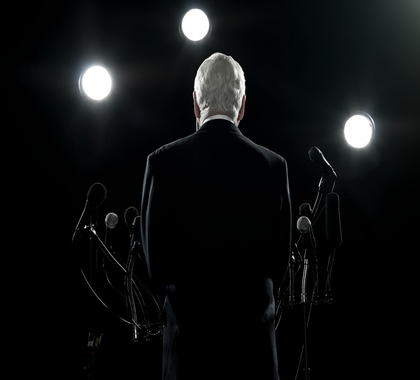The Kansas State Legislature has recently zeroed in on limiting gubernatorial powers during a state of emergency, particularly in reference to freedom of worship. The Kansas House of Representatives is considering House Bill 2730, which—in tandem with companion legislation Senate Bill 409—would amend the Kansas Emergency Management Act and rein in executive powers granted to the governor during a state of disaster emergency.
The legislation states that a governmental entity or public official shall not restrict the manner of any worship service or activity in any way in Kansas. They may not suspend, regulate or prohibit the conduct of any worship service or activity regardless of whether the worship service or activity is conducted inside a building, inside a temporary structure or outdoors. Further, such entities and officials may not limit the number of participants of any worship or activity, other than by enforcing limitations on the number of persons in a building imposed by fire codes.
HB 2730 would require the chairperson of the legislative coordinating council to call a council meeting for the purpose of reviewing any executive order’s issuance within 24 hours. Any executive orders shall be null and void after the period of a state of disaster emergency has ended.
Additionally, such executive orders may be revoked at any time by concurrent resolution of the legislature or, when the legislature is not in session or is adjourned during session for three or more days. Such orders may be revoked by the legislative coordinating council with the affirmative vote of five members.
House Bill 2730 is a step in the right direction to curbing gubernatorial power during state of disaster emergencies, especially after the coronavirus pandemic shed light upon how easily these can be abused.
During the pandemic, many Americans saw their respective governors wield unprecedented power with seemingly unlimited emergency declarations. This overnight shift in governance, coupled with a plethora of governors who abused their pandemic emergency powers, has left several states reevaluating constitutional statutes pertaining to emergency provisions and powers granted to the governor during a state of emergency. With HB 2730, Kansas is no exception.
This change to the current Kansas Emergency Management Act is paramount to prohibit governors present or future from excessively extending state of emergency powers long past the point of necessity, and wielding other powers that affect the economy, small businesses, and education.
Simply put, HB 2730 creates commonsense restrictions and limitations on gubernatorial powers. Furthermore, it reintegrates the legislature into the governing process during states of emergency. It aligns with many of the principles developed by The Heartland Institute during the pandemic, which legislators can reference upon any gubernatorial abuses of power.
Some of these ideas and principles include:
- The ability to immediately nullify an emergency proclamation via resolution.
- The creation of time limitations for an emergency order, renewable by the legislature.
- The ability to pass a resolution that requires the governor to call a special session to approve of an emergency proclamation if the legislature is out of session.
- Permitting an interim committee or group of legislative leaders to extend or reject emergency proclamations.
- The imposition of specific limits to executive authority during an emergency proclamation (i.e., restricting the governor from unilaterally closing businesses, closing houses of worship, shutting down freedom of the press, and rescinding the right to bear arms).
There is a clear appetite among lawmakers and constituents to restrict gubernatorial overreach, especially after governors across the country dictated policy like kings throughout the pandemic. Via this legislation, Kansas lawmakers can catch up to their peers in other states who have already taken measures to rein in executive authority.
Co-equal governance, checks and balances, and the decentralization of power are bedrock principles of American democracy. Yet, these fundamental principles have been AWOL in Kansas since the pandemic.
Fortunately, lawmakers in Kansas are beginning to stand up to gubernatorial overreach by reasserting their rightful place as a much-needed check against the executive branch.
The following documents provide more information about executive authority in a state of emergency.
Testimony Before the Georgia House Judiciary Committee regarding legislative and executive authority in a state of emergency.
Andrew Cuomo Is Just a Governor, Not a God
Cuomo has issued multiple statements in an attempt to quell the backlash and frustration of New Yorkers and lawmakers in Albany to no avail.
Governors, Not Gods – A Heartland Institute Webinar
The Heartland Institute hosted a webinar on Aug. 27, 2020, for state legislators to discuss how they can rein in governors, who wield seemingly unlimited powers in the wake of COVID-19. For many months, Americans have been abhorred by out-of-control governors who have imposed draconian lockdowns, which have decimated small businesses and people’s livelihoods. For instance, Gov. Andrew Cuomo has been roundly criticized for his heavy-handed and ineffectual response to the coronavirus outbreak in New York, which has drawn substantial blowback. Cuomo has also attempted to coverup his disastrous policy of forcing elderly patients with COVID-19 to return to nursing homes, where they spread the deadly diseases like wildfire among New York’s most vulnerable. As the days grow shorter and the temperatures dip lower, now is the time to begin exploring oversight over dictatorial governors and restore power where it rightfully belongs: With we the people, not I the governor.
___________
Nothing in this Research & Commentary is intended to influence the passage of legislation, and it does not necessarily represent the views of The Heartland Institute. For further information on this and other topics, visit the Budget & Tax News website, The Heartland Institute’s website, and PolicyBot, Heartland’s free online research database.
The Heartland Institute can send an expert to your state to testify or brief your caucus; host an event in your state; or send you further information on a topic. Please don’t hesitate to contact us if we can be of assistance! If you have any questions or comments, contact Heartland’s Government Relations department, at [email protected] or 312/377-4000.




